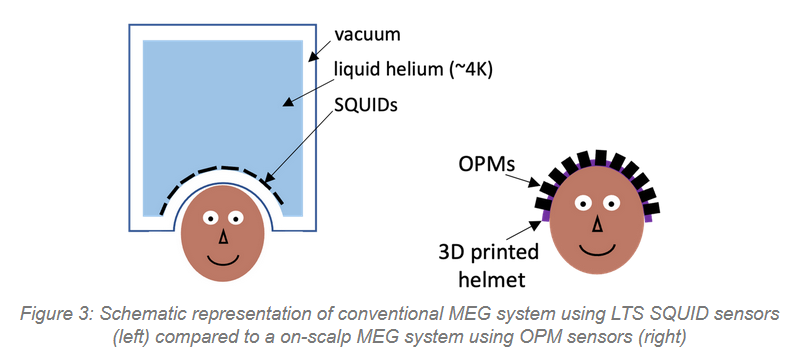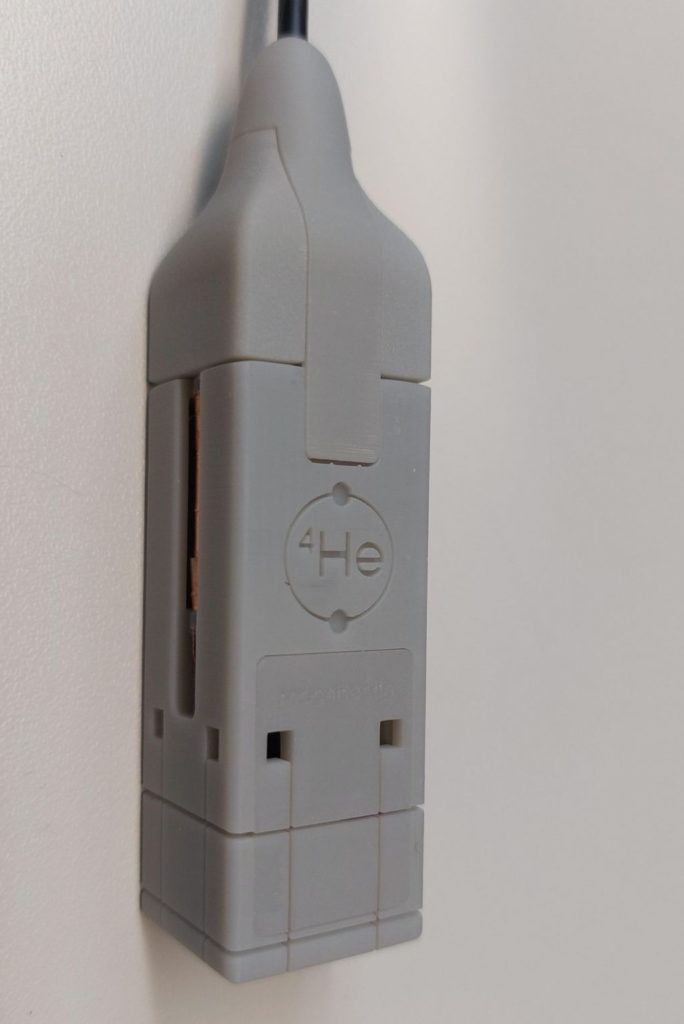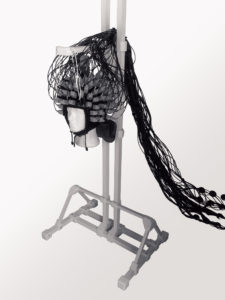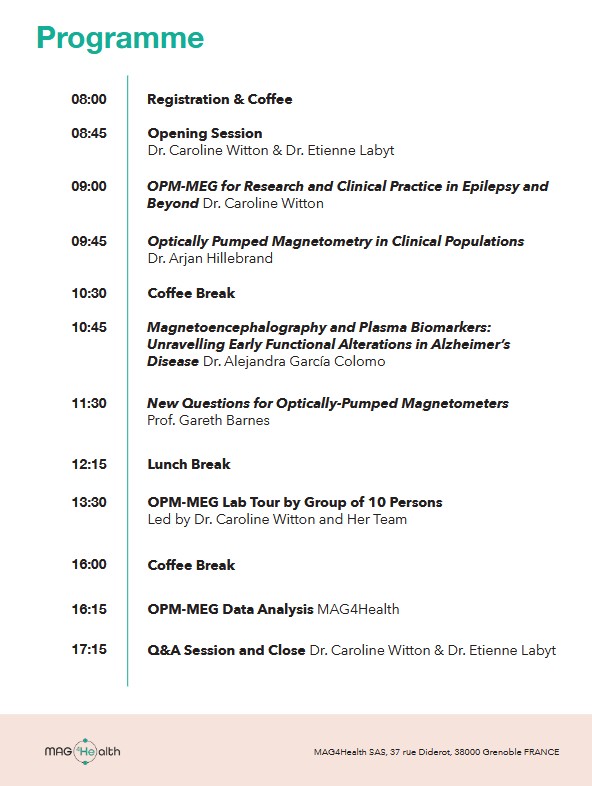MAG4Health's OPM-MEG device takes full advantage of room temperature quantum sensor technology used for Space applications to pave the way for a new era of MagnetoEncephaloGraphs (MEGs) for clinical applications on patients suffering from brain disorders.
Magnetoencephalography is a non-invasive medical test that detects, records and analyzes the magnetic fields produced by electrical currents in the brain.
Magnetoencephalograph is the sole device to provide a high spatial and temporal resolution; it enhances the precision of the localization of abnormal functional brain areas and tracks the dynamics of brain networks – functional brain mapping (FBM).
The conventional MEG system, MEG-SQUIDs (Superconducting Quantum Interference Devices), however is bulky and costly due to the hash cryogenic temperatures operating requirements.
Optically pumped magnetometers (OPMs) are new alternatives to SQUIDs for measuring the brain’s magnetic fields thanks to atoms and light.
OPM-MEG systems have the potential to dramatically outperform the current state of the art

Sensors properties are tightly bound to atomic behavior.
MAG4Health takes advantage of a helium optically-pumped magnetometer developed for Space applications (Swarm mission, >10years of continuous operation), its long lifespan and use at room temperature (no heating nor colling) paves the way for a democratization in Hospitals, Clinics and Universities for clinical and fundamental research.



Aston University’s Institute of Health of Neurodevelopment (IHN) and Birmingham Children’s Hospital got a new, child-friendly magnetoencephalography (MEG) brain scanner.
A nine-strong clinical and research team led by Dr Caroline Witton, reader in psychology, was awarded an £800,000 grant from the Medical Research Council (MRC) Capital Funding for World Class Labs scheme. This has been supplemented by Aston University, giving a total budget of £2.5m to purchase the MEG scanner from French company MAG4Health and construct a new, magnetically shielded laboratory in the IHN building to house it.


MAG4HEALTH will be hosting a workshop at Aston University with Dr Caroline Witton and her team, and the support of our business partner in UK Brainbox Ltd !
The workshop offers the
opportunity to get a glimpse into our Helium-based Optically-Pumped
Magnetometers MEG system (OPM-MEG) that was installed in Caroline Witton‘s lab and, gain insight into the data acquisition and analysis pipeline used in MEG Research.
For the first time, we’ve decided to surround this workshop with top-notch speakers:
🌟 Dr Caroline Witton (Aston University)
🌟 Dr Arjan Hillebrand (Amsterdam, UMC)
🌟 Dr Alejandra García Colomo (Universidad Complutense de Madrid)
🌟 Prof. Gareth Barnes (UK, UCL)
To register: https://lnkd.in/dcnAJwWx
Spaces for this workshop are strictly limited.
Being the unique brain scan with high spatial and temporal resolutions, MagnetoEncephaloGraphy (MEG) has numerous applications:
Epilepsy and brain mapping
Localization of epileptic discharges and pre–surgical functional brain mapping are the most common clinical application.
Neurological disorders
Probe the brain to better understand mental illness and advance treatments.
Cognitive Neuroscience
Interested in learning more about our OPM-MEG system?
Willing to join this adventure?